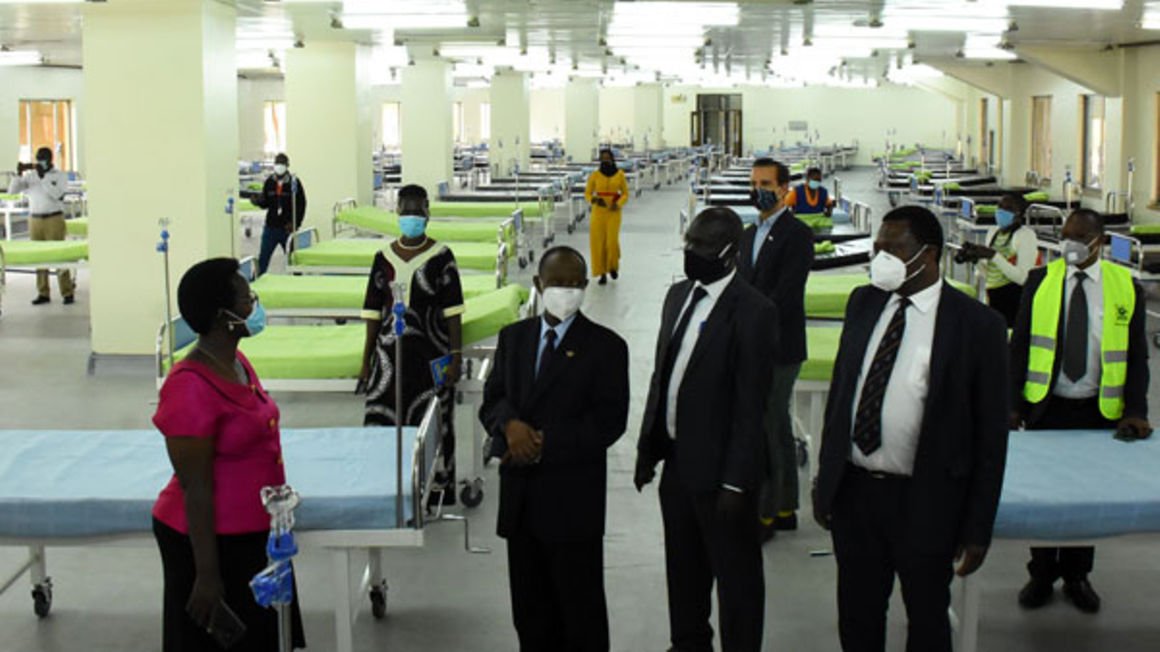A report released by the Bill and Melinda Gates Foundation on Monday has revealed that the coronavirus pandemic has drawn back world progress by 20 years.
The reports paint a bleak picture where the effects so far witnessed will most likely continue longer unless all nations collectively find solutions to address the impact.
The report is based on the assessment of progress made to achieve the Sustainable Development Goals adopted by all United Nations member states in 2015 as a universal call to action to end poverty and ensure all people enjoy peace and prosperity by 2030.
“In recent years, the world has improved on every single one. This year, on the vast majority, we’ve regressed. By nearly every indicator, the world has regressed. Because of Covid-19, extreme poverty has increased by seven per cent. Vaccine coverage, a good proxy measure for how health systems are functioning, is dropping to levels last seen in the 1990s, setting the world back about 25 years in 25 weeks,” the report states.
The report describes the pandemic as “mutually exacerbating catastrophes” where “a health crisis became an economic crisis, a food crisis, a housing crisis, a political crisis. Everything collided with everything else. In other words, we have been set back for about 25 years in about 25 weeks.”
The pandemic has dealt a blow to all facets of life from the economy, access to health services, clean water, equality, nutrition, education, politics and governance among others.
The report adds that economic damage birthed by the responses to the pandemic could push more people into poverty and increased inequalities, with women more affected than men.
During the budget reading, Finance minister Matia Kasaija said the economic growth stands at 3.1 per cent as opposed to the average 5.4 per cent in the last four years.
The country’s economic growth had been anticipated to be at 6 per cent this financial year.
According to the Performance of the Economy Report for the month of August released by the Ministry of Finance on September 15, the domestic collections by the Uganda Revenue Authority surpassed the anticipated target.
However, the cumulative collections for the period of July and August fell to Shs2581.32b compared to Shs2655.85b collected over the same period last year.
The report also indicates that Uganda’s exports to the East African countries grew by 8.3 per cent from $75.32m (about Shs278.62b) in July 2019 to $81.6m (about Shs301.8b) in July 2020. This is due to an increase in exports to South Sudan and Tanzania.
Over the same period, imports from the EAC increased by 35.7 per cent from $123.97m (Shs458.57b) to $168.18m (Shs622.11b).
Economist Ramathan Ggoobi yesterday explained that the Ugandan economy may not be as badly hit as earlier anticipated but the effects will be felt.
He said aggregate demand will remain low for about a year and many more jobs in the formal sector may be lost because of the low turnover of businesses.
On August 20, Daily Monitor reported that data from the Ministry of Gender Labour and Social Development indicated more than 2,700 workers had been laid off, made redundant or had their salaries reduced.
A survey by the Uganda Bureau of Statistics on the impact of Covid-19 on businesses indicates that 84.9 per cent of establishments in the manufacturing sector reported that support staff were the most affected in terms of job losses.
Mr Ggoobi opined that the informal sector may recover much faster because of the living conditions that are forcing Ugandans to defy the preventive measures against Covid-19 to resume business.
The pandemic also significantly disrupted the health sector. Many people with underlying health conditions have had trouble accessing medical care, with all focus shifted to handle the pandemic.
Dr Diana Atwine, the Ministry of Health Permanent Secretary, said the onset of the pandemic altered the implementation of the sector work plan, due to the diversion of both financial and human resource.
“We have been trying to mitigate staffing gaps by recruiting more staff. Some of the skilled staff [ICU personnel or acute care ] are dedicating more time to these patients and yet there are other patients who need care but because we don’t have enough workforce, we have been pooling the same resources, because of the workload,” Dr Atwine said.
She revealed that the lockdown affected the number of people accessing immunisation services.
“Some Ugandans even fear to go to a hospital because they think they will pick Covid-19 from there,” she added. The report indicates that effects are expected to be more adverse in developing countries especially when it comes to shielding the economy from the ripple effects of the pandemic.
“By contrast, there are inherent limits to what lower-income countries are able to do to backstop their economies, regardless of how effectively those economies have been managed. On average, the economies of sub-Saharan African countries grew faster than the rest of the world every single year between 2000 and 2015, but sub-Saharan Africa is still the lowest-income region in the world,” the report states.
It adds: “Most countries there can’t borrow the money they need to minimise the damage, and their central banks don’t have the range of options available to the European Central Bank and the U.S. Federal Reserve.”
According to the report, a collective effort is a must if the world is to find solutions and pick up the pace to recovery.
“There is no such thing as a national solution to a global crisis. All countries must work together to end the pandemic and begin rebuilding economies. The longer it takes us to realise that, the longer it will take (and the more it will cost) to get back on our feet,” the report states.
Source: Daily Monitor

